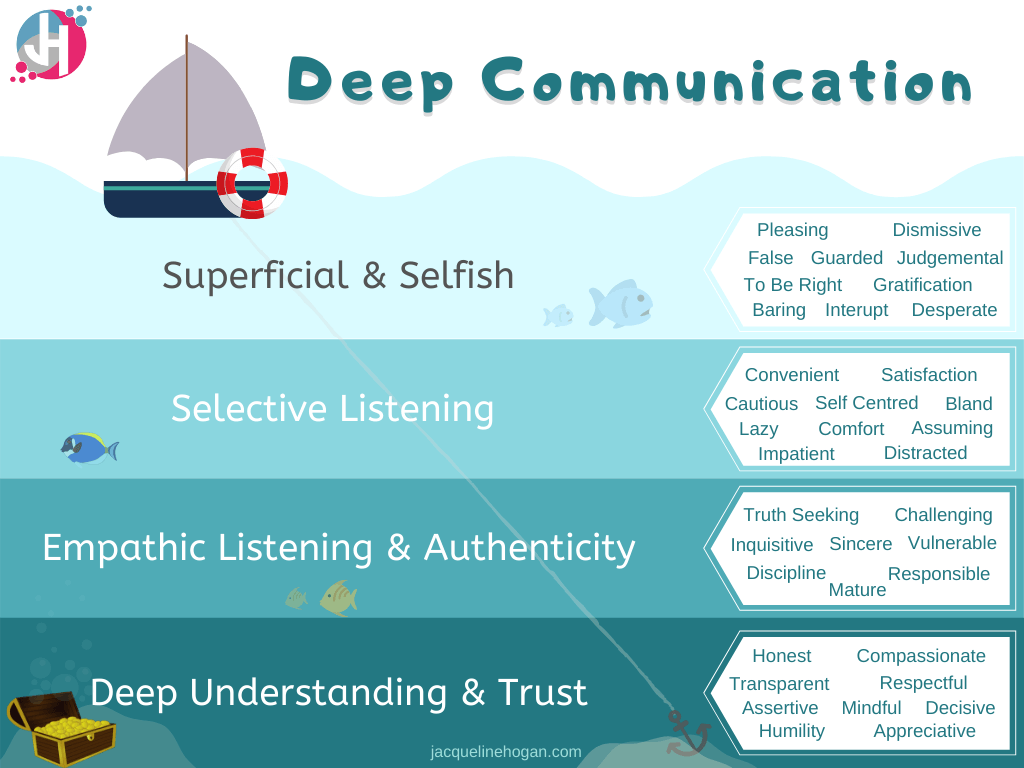Have you ever had a conversation with someone where you felt truly understood and heard? Where the person you were speaking to seemed to have an uncanny ability to empathize with your thoughts and emotions? This kind of connection is rare, but when it happens, it can be truly transformative. It is what we call empathetic communication, and it goes beyond simple conversation; it is a powerful tool for building deep and meaningful relationships.
Empathy is the ability to understand and share the feelings of another person. It is the ability to put yourself in someone else’s shoes and experience the world from their perspective. Empathetic communication is the act of not only recognizing and acknowledging another person’s emotions but also validating those emotions and responding in a way that demonstrates understanding. It is a skill that can be learned and developed, and it can have a profound impact on our relationships and our overall well-being.
When we engage in empathetic communication, we create a safe space for others to express their feelings. We let them know that they are not alone and that we are there to support them. This kind of validation is incredibly powerful, as it allows the other person to feel seen and understood. It can help to alleviate feelings of isolation and build a sense of trust and openness.
But how do we cultivate empathetic communication in our own lives? It starts with active listening. In our fast-paced world, we are often more focused on preparing our own responses rather than truly listening to what others are saying. Empathetic communication requires us to slow down and give our full attention to the person speaking. We need to set aside our own judgments and preconceived notions and be fully present with the other person.
Beyond listening, empathetic communication also involves reflecting and validating the other person’s emotions. This means acknowledging their feelings and letting them know that those feelings are valid and important. Sometimes all it takes is a simple statement like, “I can understand why you would feel that way” or “It sounds like you’re really going through a tough time.” These small gestures of empathy can make a big difference in how the other person feels understood and supported.
It is important to note that empathetic communication is not about fixing or solving the other person’s problems. It is about showing care and compassion, regardless of the outcome. Often, people just need someone to listen to them without judgment or offering unsolicited advice. The act of empathizing itself can be incredibly healing and empowering.
In addition to enhancing our personal relationships, empathetic communication also has a profound impact on our professional lives. In the workplace, it can foster a sense of teamwork and collaboration, as people feel valued and understood. It can also improve customer service, as employees who practice empathetic communication are better able to connect with and meet the needs of their clients and customers.
Furthermore, empathetic communication can also have positive effects on our mental and emotional well-being. When we take the time to truly connect with others on a deeper level, it can bring us joy, fulfillment, and a greater sense of purpose. It can also help us to develop stronger emotional intelligence, which is the ability to understand and manage our own emotions as well as those of others.
If you’re interested in developing your empathetic communication skills, there are several strategies that can help. First and foremost, practice active listening in all your conversations. Make a conscious effort to be fully present and engaged with the other person. Second, be mindful of your body language and non-verbal cues. Show that you are listening and interested through eye contact, nodding, and facial expressions. Finally, be willing to be vulnerable and open yourself up to the emotions of others. This can be challenging at times, but it is essential for building trust and connection.
In conclusion, empathetic communication is a powerful tool for connecting on a deeper level with others. By actively listening, reflecting, and validating the emotions of others, we can create a safe space for them to be heard and understood. This kind of communication not only enhances our relationships but also has positive effects on our mental and emotional well-being. So, let’s strive to cultivate empathy in our lives and create a world where everyone feels seen and valued.
